CISSP is an independent information security certification granted by the International Information System Security Certification Consortium, also known as ISC2.

In the context of information security, social engineering is the psychological manipulation of people into performing actions or divulging confidential information. A type of confidence trick for the purpose of information gathering, fraud, or system access, it differs from a traditional "con" in that it is often one of many steps in a more complex fraud scheme. It has also been defined as "any act that influences a person to take an action that may or may not be in their best interests."
Flooding or scrolling on an IRC network is a method of disconnecting users from an IRC server, exhausting bandwidth which causes network latency ('lag'), or just disrupting users. Floods can either be done by scripts or by external programs.
Rizon is a large Internet Relay Chat (IRC) network with an average of around 20,000 users. The IRC network itself ranks number 5 among the largest IRC networks. Rizon is popular with many anime fansubbing groups who work online, many of whom provide their content through XDCC via IRC bots in their distribution channels. It is also used by many users of eRepublik as a means of communication. File sharing of other copyrighted material such as Warez is also common in some channels on the network.

A security hacker is someone who explores methods for breaching defenses and exploiting weaknesses in a computer system or network. Hackers may be motivated by a multitude of reasons, such as profit, protest, information gathering, challenge, recreation, or evaluation of a system weaknesses to assist in formulating defenses against potential hackers.
Certified Ethical Hacker (CEH) is a qualification given by EC-Council and obtained by demonstrating knowledge of assessing the security of computer systems by looking for weaknesses and vulnerabilities in target systems, using the same knowledge and tools as a malicious hacker, but in a lawful and legitimate manner to assess the security posture of a target system. This knowledge is assessed by answering multiple choice questions regarding various ethical hacking techniques and tools. The code for the CEH exam is 312–50. This certification has now been made a baseline with a progression to the CEH (Practical), launched in March 2018, a test of penetration testing skills in a lab environment where the candidate must demonstrate the ability to apply techniques and use penetration testing tools to compromise various simulated systems within a virtual environment.

Dave Kleiman was an American computer forensics expert, an author or co-author of multiple books and a frequent speaker at security related events.
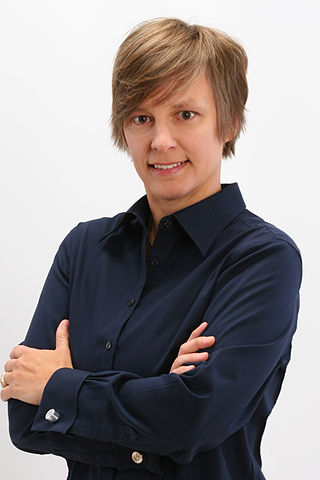
Angela Orebaugh is a cyber technology and security author and researcher. In 2011, she was selected as Booz Allen Hamilton's first Cybersecurity Fellow. She is an assistant professor at the University of Virginia School of Continuing and Professional Studies, and serves there as the program director for certificates in cybersecurity.
Johnny Long, otherwise known as "j0hnny" or "j0hnnyhax", is a computer security expert, author, and public speaker in the United States.
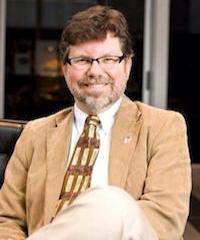
Peter Hart Gregory, CISA, CISSP is an American information security advisor, computer security specialist, and writer. He is the author of several books on computer security and information technology.
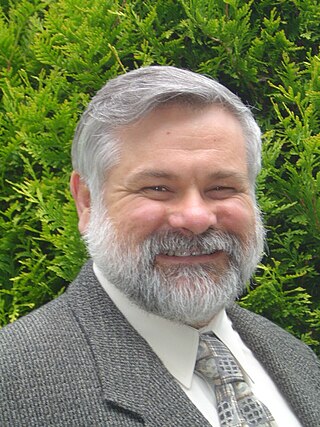
Robert Michael Slade, also known as Robert M. Slade and Rob Slade, is a Canadian information security consultant, researcher and instructor. He is the author of Robert Slade's Guide to Computer Viruses, Software Forensics, Dictionary of Information Security and co-author of Viruses Revealed. Slade is the author of thousands of technical book reviews, today published on the techbooks mailing list and in the RISKS Digest, and archived in his Internet Review Project. An expert on computer viruses and malware, he is also the Mr. Slade of "Mr. Slade's lists".

Computer security software or cybersecurity software is any computer program designed to influence information security. This is often taken in the context of defending computer systems or data, yet can incorporate programs designed specifically for subverting computer systems due to their significant overlap, and the adage that the best defense is a good offense.
Justin Tanner Petersen was an American hacker, concert promoter, sound engineer, private investigator and an informant for the Federal Bureau of Investigation. While tasked with helping to catch other hackers and fugitives wanted by the FBI, he continued to commit serious crimes.
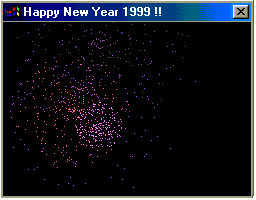
Happy99 is a computer worm for Microsoft Windows. It first appeared in mid-January 1999, spreading through email and usenet. The worm installs itself and runs in the background of a victim's machine, without their knowledge. It is generally considered the first virus to propagate by email, and has served as a template for the creation of other self-propagating viruses. Happy99 has spread on multiple continents, including North America, Europe, and Asia.
Offensive Security Certified Professional is an ethical hacking certification offered by Offensive Security that teaches penetration testing methodologies and the use of the tools included with the Kali Linux distribution. The OSCP is a hands-on penetration testing certification, requiring holders to successfully attack and penetrate various live machines in a safe lab environment. It is considered more technical than other ethical hacking certifications, and is one of the few certifications that requires evidence of practical penetration testing skills.
David Harley is an IT security researcher, author/editor and consultant living in the United Kingdom, known for his books on and research into malware, Mac security, anti-malware product testing and management of email abuse.
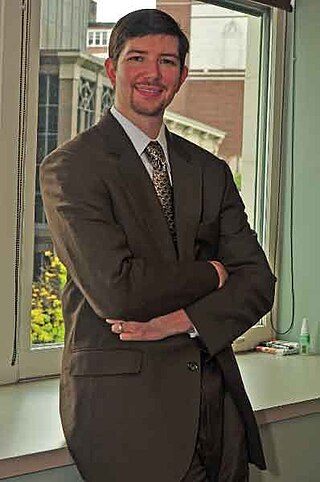
Eric Vanderburg is an American cyber security, storage networking and information technology professional and writer living in Cleveland, Ohio.
This is a list of cybersecurity information technology. Cybersecurity is security as it is applied to information technology. This includes all technology that stores, manipulates, or moves data, such as computers, data networks, and all devices connected to or included in networks, such as routers and switches. All information technology devices and facilities need to be secured against intrusion, unauthorized use, and vandalism. Additionally, the users of information technology should be protected from theft of assets, extortion, identity theft, loss of privacy and confidentiality of personal information, malicious mischief, damage to equipment, business process compromise, and the general activity of cybercriminals. The public should be protected against acts of cyberterrorism, such as the compromise or loss of the electric power grid.
Chris Kubecka is an American computer security researcher and cyberwarfare specialist. In 2012, Kubecka was responsible for getting the Saudi Aramco network back up and running after it was hit by one of the world's most devastating Shamoon cyberattacks. Kubecka also helped halt a second wave of July 2009 cyberattacks against South Korea. Kubecka has worked for the US Air Force as a Loadmaster, the United States Space Command and is now CEO of HypaSec, a security firm she founded in 2015. She lives and works in the Netherlands.






